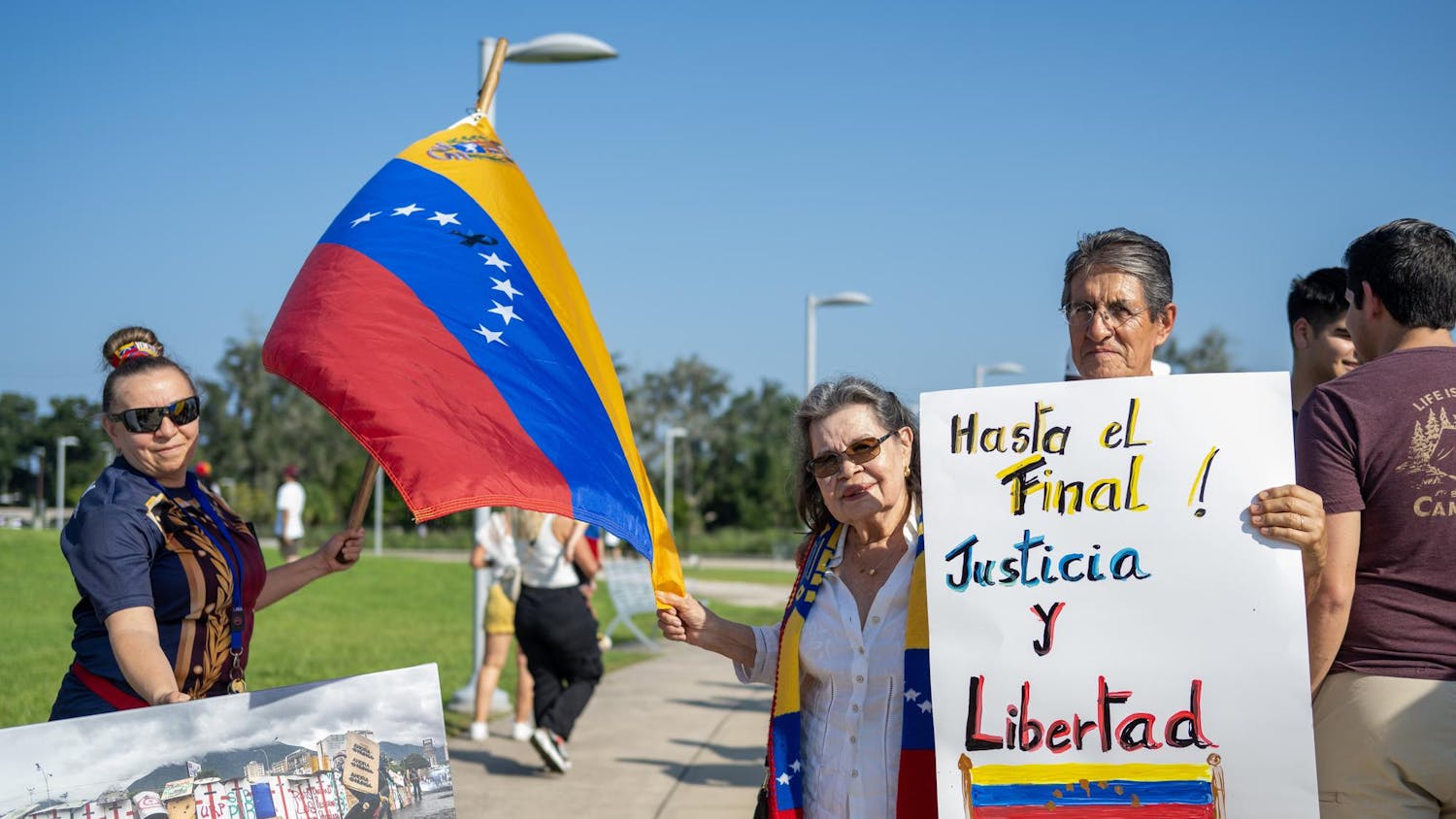Carlota Bonnet didn’t expect herself to agree with President Donald Trump.
Bonnet, a former Santa Fe College engineering student and Venezuelan, was against the initial travel ban, which limited people from seven Muslim-majority countries from entering the U.S. A new version of the ban, announced yesterday, includes limits on Venezuelan government officials, according to CNN.
The 21-year-old said she was happy Venezuelan officials would no longer be able to take their money and escape to the U.S., leaving behind their struggling country. Bonnet’s parents left the country in 2015 due to the ongoing crisis.
“Donald Trump has a lot of negative things,” Bonnet said. “He has done some awful things, but he is one of the only ones that has done something for Venezuela in this moment.”
She hopes the travel ban for the other Muslim-majority countries is taken away. Bonnet said it’s unfair to judge an entire country of people, but she’s glad to see Venezuela's government officials face consequences for their actions.
“The government in Venezuela is a mess,” she said. “It’s awful, and I really hope we successfully take them out someday.”
Efrain Mogollon, a 20-year-old former Santa Fe College political science and economics major, said he hopes the new restriction on Venezuelan officials and economic sanctions will help his country.
Mogollon is from San Cristóbal, a city where strikes broke out in 2014. At the time, Mogollon was finishing high school. He knew to get an education, he’d have to leave his family and the country — all schools were closed.
“If we have a good country, one day we can go back,” he said. “And it’s going to be a beautiful place to be.”
Iranian students at UF have been dealing with different forms of the travel ban since it was first announced in late January.
Guita Banan, a 30-year-old UF physics doctoral student, said it’s like she is trapped in America.
Banan’s visa recently expired. As long as she does not leave the country, she is legally allowed to be here. If she leaves, though, she has to reapply for another visa, which could take months.
“Getting a U.S. visa for Iranians has never been easy,” she said. “People think that things got bad after the order was signed, but in fact things were bad before the order. It got terrible after the order was signed.”
She said it’s cruel to ban family members from seeing their children just because they’re from Iran. Her parents want to visit their children in the U.S., but are unsure if they can come.
“To ban these people from coming here to visit their children, that’s horrible,” she said.
The current travel ban allows people to enter the U.S. if they have a “bona fide relationship” with someone in the country, according to the BBC. Though this may let some people in, Banan said it’s an unclear system and decided on a case-by-case basis.
Because of the restrictions, Banan’s boyfriend of 7 years cannot visit her. Her boyfriend, Nima, is from Iran but is currently in Austria. In the past two years she’s only been able to see him three times, and she doesn’t know when she’ll be able to see him next, because he doesn’t fall under the “bona fide relationship” category.
Because of the restrictions on him entering the US, she doesn’t see herself staying in the country after her graduation. As of now, she’s still holding out that her parents can come visit.
“We’re just waiting to see what happens with the new order,” she said.





